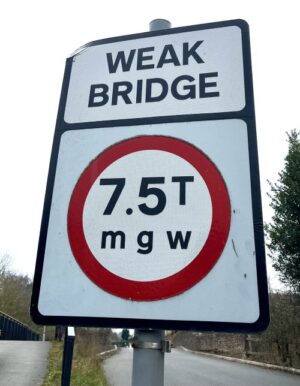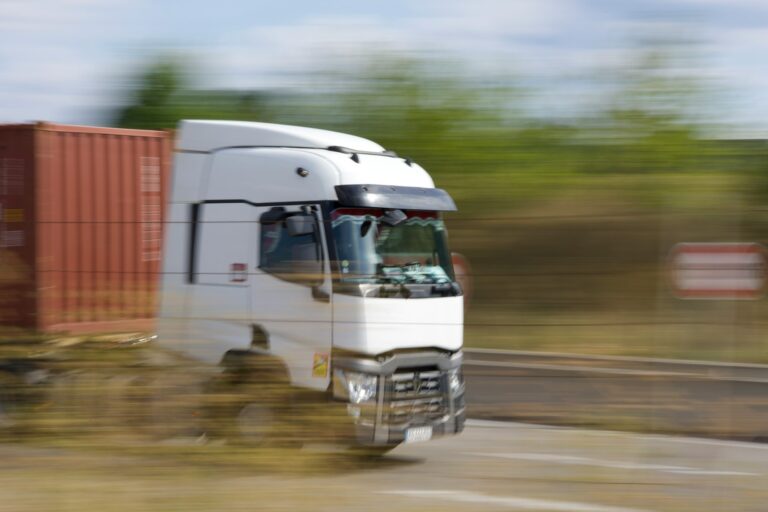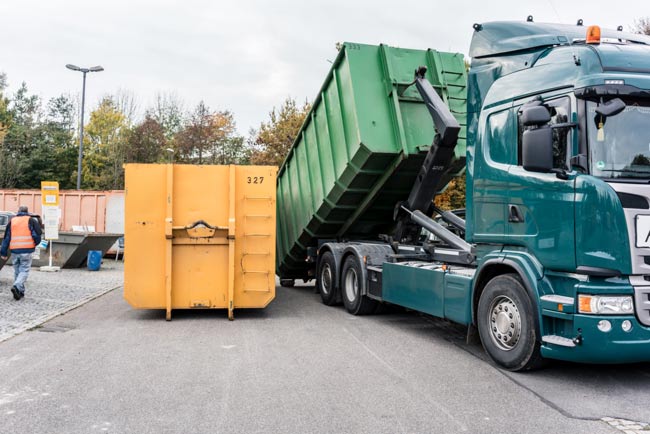What is Container Flexibility in Hook Loader Fleets?
In waste and construction haulage, container flexibility refers to the ability to use a single chassis with multiple interchangeable containers. Hook loaders are designed around this principle: operators can collect, transport, and drop off containers of varying sizes and specifications using the same vehicle.
For waste operators, fleet managers, and hire companies, this flexibility translates into higher efficiency, reduced downtime, and more responsive service.
Why Container Flexibility Matters for Fleet Efficiency
Hook loaders allow operators to switch containers quickly without waiting for one to be emptied before collecting another. This system is particularly valuable when:
- A skip hire company needs to service multiple sites in a single day.
- A demolition contractor wants to remove mixed waste streams separately, using different containers.
- A recycling operator is rotating bins at facilities where waste segregation is required.
In each case, the same vehicle can complete jobs that would otherwise need two or more dedicated lorries.
Key Advantages of Hook Loader Containers
1. Reduced Vehicle Downtime
- Containers can be dropped and left on site while the vehicle moves on.
- Drivers spend less time waiting, maximising daily trips.
2. Lower Capital Outlay
- Buying or hiring additional containers is far cheaper than expanding the fleet.
- Ideal for smaller operators who want to scale service without heavy investment.
3. Greater Operational Flexibility
- Containers available in multiple lengths and capacities.
- Suited to mixed jobs: bulky demolition waste one day, lighter recyclables the next.
4. Improved Customer Service
- Operators can leave containers for as long as needed without tying up a vehicle.
- Faster response times to collection requests.
Practical Example: Skip Hire vs Hook Loader Containers
A skip hire operator with five sites to service could:
- With standard skip lorries: allocate one lorry per site or make multiple trips.
- With a hook loader: use one vehicle to drop containers at each site in the morning, then return later to collect filled loads.
The second approach reduces mileage, fuel consumption, and man-hours.
Learn more about which is better for waste management here.
Cost and ROI Considerations
While hook loader chassis are a higher initial investment compared to rigid skip lorries, the payback is clear:
- Fewer vehicles needed for the same workload.
- More efficient use of drivers — especially important given the ongoing HGV driver shortage.
- Longer service life of the fleet through reduced strain on individual vehicles.
When combined with regular servicing and maintenance schedules, hook loaders remain cost-effective over the long term.
Where Hook Loaders Fit in Mixed Fleets
Many operators run fleets that include skip lorries, tippers, and hook loaders. Each has a place:
- Skip lorries: best for domestic and small commercial sites where access is tight.
- Tippers: ideal for loose materials such as soils or aggregates.
- Hook loaders: perfect for sites where multiple containers are rotated daily.
By combining these vehicles, fleet managers can deliver a balanced, versatile service. Explore our hook loaders, skip loaders, and tippers pages to see how they differ in operation.
FAQs: Hook Loader Container Flexibility
Q1. How many containers can a hook loader handle in a day?
This depends on the distance between sites and turnaround times, but operators typically rotate 8–12 containers per day with a single vehicle.
Q2. Are hook loader containers standardised?
Most are built to industry-standard lengths and hook heights, but operators can also request custom builds for specific jobs.
Q3. Can hook loaders be used for both waste and aggregates?
Yes. With the right container type — such as heavy-duty bins for rubble or lighter units for recyclables — hook loaders can manage a wide range of materials.
Q4. What’s the main difference between hook loader containers and skips?
Skips are fixed to skip lorries, whereas hook loader containers are interchangeable. This makes hook loaders more efficient for multi-site operations.



